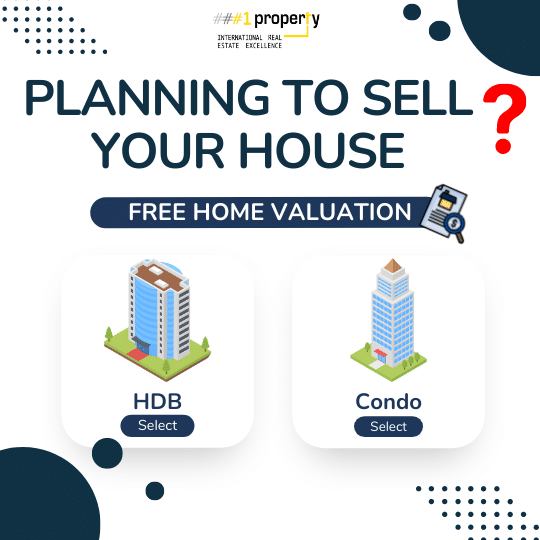Choosing The Right Home Loan While Buying Property In Singapore
Listen to the article
Thinking of buying property in Singapore? Not so fast; you have to pick the right home loan that suits your needs!

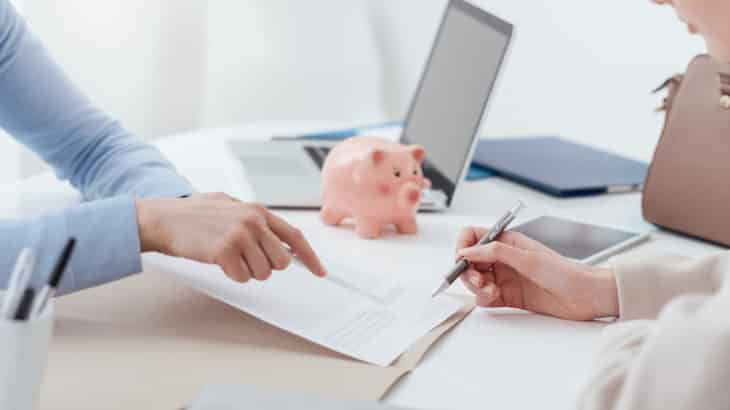
Buying property in Singapore is a tedious, long, and drawn-out affair that spans decades.
That’s why it’s so important to pick the right home loan for the type of property you want to buy.
So many factors and variables go into selecting the right home loan that a person could literally have his head blown out of frustration.
From loan package to loan interest rate, mortgage rate, the cancellation fee amount, imposition of late payment fees, lock-in period, whether or not there are any cash rewards etc.
To be honest, going through a plethora of options when considering a home loan will definitely shoot all your blood flow up to your brain.
What’s worse, it will stay there until you have actually obtained the loan.
Planning ahead for your property purchase can be rigorous and downright annoying.
That’s why we’ve come up with a detailed but brief article about the ins and outs of choosing the right home loan.

What Kind Of Home Loan Can I Get For My Property Type?
The most important factor determining the kind of home loan you choose is the property type.
Simply put, there are many types of property in Singapore, and the type of loan you pick has to reflect your property choice.
To summarise, here is a list of all the property types and the different loan options available for them.
- HBD Built To Order flats; flats still under construction; can be paid for using either an HBD loan or a bank loan on floating rates.
- HBD resale flats or completed Built To Order flats can be paid for using either HBD loans or bank loans at a fixed rate or a bank loan at a floating rate.
- Private property which is still under construction can be paid for using a bank loan at a floating rate.
- Private property which has been built can be financed using a bank loan at a fixed or floating rate.
As we all know, the most common type of housing in Singapore is HBD flats; so we wouldn’t be surprised if you or someone you know has already taken an HBD housing loan.
HBD loans are probably the easiest to qualify for and come with very relaxed measures and circumstances.
Unlike other types of property, you don’t have to pay anything in cash while buying an HBD flat using an HBD loan if you have enough CPF savings.
This ease of access is probably why it is referred to as the default loan type for Singaporean citizens.
The only downside is that HBD loans are only allowed if you are buying public property such as an HBD flat.
But at-least HBD flats give you the option to go for a bank loan as well, so that’s something.
On the other hand, buying private property will mean that you can only opt for private bank loans.
This means that you’ll have to research the different rate packages and rate mortgages that you can get from various major banks.
Moreover, any property still under construction, regardless of whether it is private or HBD property, will only allow loans given at floating interest rates.
However, you can get a fixed-rate mortgage loan once the property is completely built.

WhatsApp Us 😊
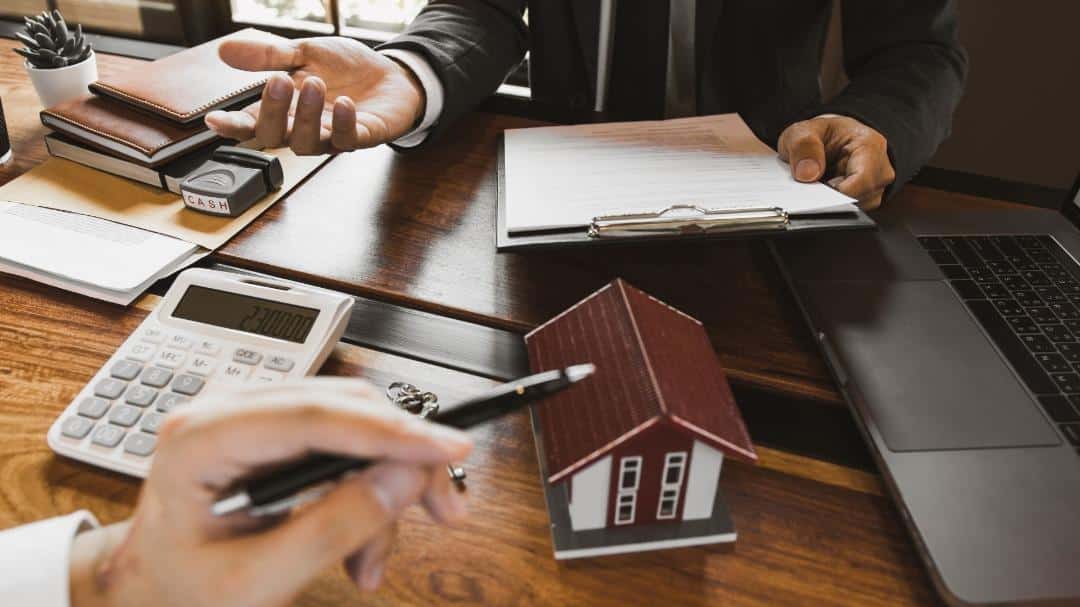
Determining The Home Loan For Your Property Type
As we’ve explained before, there are plenty of loan options available to property buyers in Singapore.
However, it is important to note that not all of these loan types will be an option for you when buying your home.
What kind of loan options you are allowed to obtain completely depends on the type of property you want to finance.
Moreover, it also depends on whether the property you want to purchase has been completed or is still under construction.
Let’s summarise the types of loans available to you under the following circumstances.
If you want to purchase an HBD BTO under construction, you are only allowed to take an HBD loan or a bank loan at a floating rate.
If you want to purchase an HBD BTO flat that has been completed or is readymade, you will be only allowed to take an HBD loan and bank loans at floating and fixed rates.
Purchasing an HBD resale flat means you are allowed to take both HBD loans and bank loans. (floating and fixed rates)
Purchasing a private property under construction will limit your options to a bank loan with a floating interest rate.
Purchasing a completed private property means you can take bank loans at both fixed and floating rates.

Qualifying For An HDB Housing Loan
The first thing to remember about HBD loans is that they are designed for property buyers from low-income backgrounds.
These individuals are usually unable to obtain their desired bank loans on terms that are feasible to them and often face difficulties when purchasing a property.
To ensure that HBD loans are only available for the needy, there is an income ceiling of $ 14,000 for couples and $ 21,000 for extended families.
To explain, if you and your partner want to apply for an HBD loan, but your annual income exceeds this income cap, you will not be eligible.
The very design of HBD loans ensures that a person with a lower income can obtain the maximum loan amount, which ultimately affects the HBD flat they choose to buy.
However, for individuals with part-time income or those doing odd jobs, only 70 % of their income will be taken into consideration during their loan applications.
To round things off, you will only be eligible for an HBD loan if you are a Singaporean citizen of 21 years or older with a gross monthly income less than $ 14,000 or $ 21,000 for extended families.
Moreover, you should not have owned any residential private property in the 30 months before your HBD loan application and should not own any other property currently.
You should not own more than one market stall, hawker stall, commercial or industrial property.
Finally, if you do operate any hawker or market stalls or commercial or industrial properties, you have to be working in it yourself.
If you pass the citizenship requirements, monthly income requirements and miscellaneous requirements, you can then apply for an HBD loan.
The next question to ask now is how much loan amount can you get?
Well, that depends on your age, income, and social financial standing.
It is safe to assume that HBD will offer a higher loan amount if you are younger, as you will have more days until your retirement to pay off the loan.
HBD has very strict considerations when it comes to your financial standing.
Contrary to popular belief, they do not base your financial standing on rental income, your savings account, dividend income, director fees, national service allowance, oversees allowance for scholarships, bonuses, overtime income, or any alimony allowances in the case of divorce.
Instead, HBD bases your income capacity on the payslips of the latest 3 months and the CPF contributions for the last 15 months; if you are a regular employee.
If you are self-employed, on the other hand, or a part-time or odd-job worker, you will need to produce your annual tax assessment form.
On top of that, you will also have to submit a valid accounting and corporate regulatory authority (ACRA) Business profile computer or a valid license of business/trade.
Additionally, odd-job workers will have to produce the last 15 months’ CPF history, the last 12 months’ bank statements along with a credit bureau report.
Also, the Latest Notice of Assessment from the IRAS or a recent letter from your employer confirming your job type, starting date, and your commission/salaries for the last 12 months.
If you are a regular employee without any CPF contributions, you will have to submit 12 months of payslips, including the last 12 months of bank statements and a credit bureau report.
Also, you’d have to produce the latest notice of assessment from the IRAS or a certified annual accounts statement from an audit firm.
If you are a pensioner, you must produce the last 3 months’ payslip or a recent letter from your previous employer confirming the monthly pension received for the last 3 months.
On top of that, you will need the bank statements for the last 12 months along with a credit bureau report.
Finally, if you have been unemployed for less than 3 months, you are required to show income proof of the preceding months from the previous employer.
On top of that, you must produce the gross monthly income amount for the last day of service, plus your CPF contribution over the previous 15 months.
If you have been unemployed for longer than 3 months, you have to submit a statutory declaration.
You can find this at any of the HBD Hub loan counters or any branch of HBD in Singapore.
All of this must be included in your HLE letter, which is what HBD uses to specify the maximum loan amount you can receive.
Moreover, you should obtain the HLE letter before you decide to sign the Option to Purchase and pay the option fee or before your first BTO property appointment.
HDB Loan Vs Bank Loan
On a general note, if you are a young couple looking to get an HBD BTO, the best way to go about it is to get an HBD concessionary loan.
This type of loan doesn’t require you to pay any cash downpayment if you have enough money in your CPF.
The only downsides are that it comes with limitations, such as the combined income ceiling limit of $ 14,000 and the 2.6 % interest rate.
Meanwhile, a bank loan doesn’t have a lot of criteria or limitations; the only thing is that you should be able to afford them.
However, bank loans might not be a suitable home loan for you, depending on your risk appetite.
If you’re buying an uncompleted property, you’ll have to deal with the often risky floating rate packages from banks.
The interest rate, in this case, is variable and is either pegged to the pre-set rate or future predicted rates by the bank, SORA or SIBOR.
This means that you’d have to spend more in cash and CPF for your downpayment for the loan, and whatever more, your monthly repayment amounts will also depend on the fluctuating rates.
The one upside here is that you will benefit a lot if the peg moves downwards, like during the Covid-19 lockdown last year when mortgages went down to 0.5 %.
Home Loans For HDB Resale / Built BTO
You have a wide range of options when it comes to refinancing your recently built BTO or buying a completed HBD resale flat.
If you qualify for the income criteria of the HBD loan, there’s nothing else like it.
This would mean paying a small downpayment; on top of that, you’d have the option to take a small loan amount and make repayment early without suffering penalties
Taking a bank loan for a completed HBD flat also lets you borrow under a fixed interest rate, which makes the loan more stable than it would be in the case of a floating rate.
Although you might have to pay a bit more, having a fixed during the 2 or 3 years lock-in period is worth it.
However, you will have to go back to paying floating rate mortgages after this lock-in period.
In fact, it is very common for the interest rate to rise after this lock-in period, so you should definitely prepare yourself financially for when it happens.
Home Loans For Private Property Under Construction
Home loans differ from bank to bank and are subject to various floating rates in the case of properties under construction; you’ll simply have to do your own meticulous research in order to spot the best one!
That being said, we have compiled some brief details of the top 5 best home loans for private properties under construction at a purchase price of $ 650,000 for a 30-year loan tenure.
Go ahead and take your pick!
Singapura Finance BUC loan with an interest rate of 1.48 % for year 1; 1.68 % for year 2; 2.08 % for year 3, and 3.75 % thereafter.
CIMB Bank BUC package at 1.60 % for year 1; 1.70 % for year 2; 2.00 % for year 3 and 2.25 % thereafter.
Standard Chartered Bank SORA BUC package with an interest rate of 1.67 % for the first three years and then 2.22 % thereafter.
Maybank 3M SORA BUC Package with an interest rate of 1.67 % for the first two years, then 2.37 % thereafter.
OCBC Bank SORA BUCK Package with an interest rate of 1.67 % the first year, 1.72 % the second year, and 1.87 % thereafter.

WhatsApp Us 😊
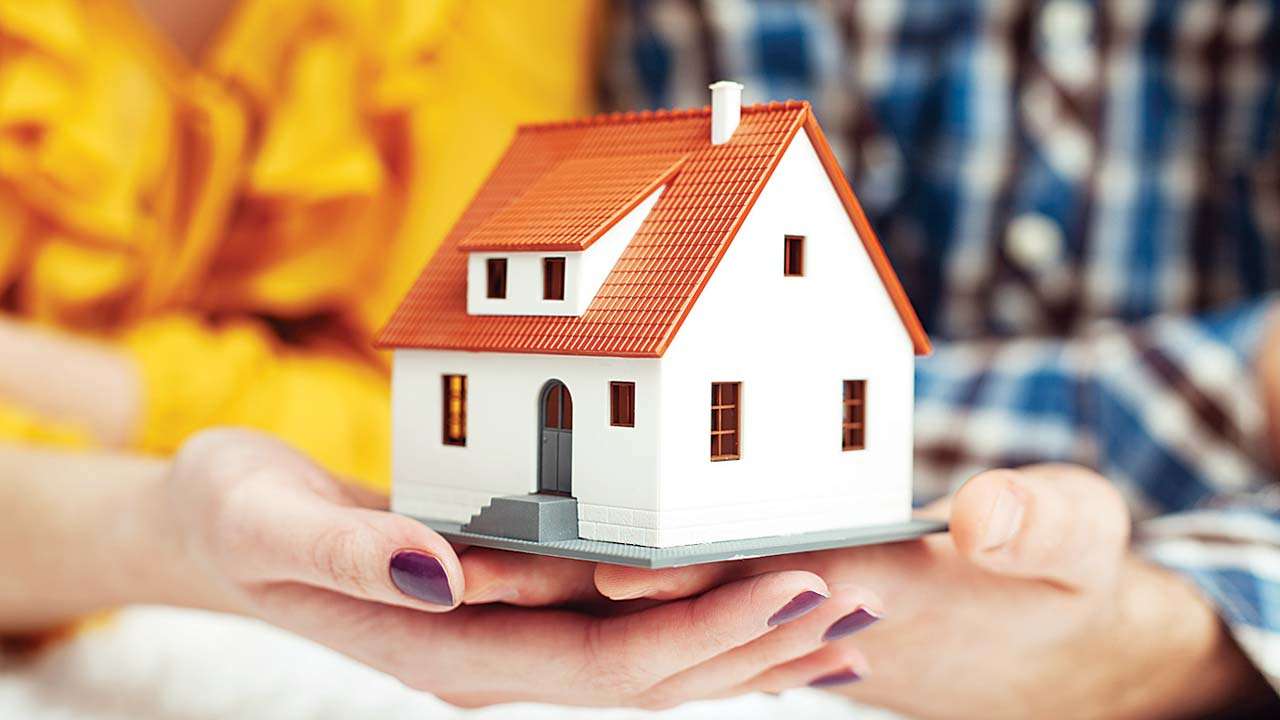
For Floating Home Loans, Is SORA Or Board Rate Better?
In our honest opinion, floating home loans with SORA rates seem to have a significant advantage over those with board rates.
Board rates are set internally at the discretion of the bank itself and are not at all transparent to the borrower.
This characteristic of being entirely controlled and determined by the bank makes board rates a risky affair for most borrowers.
Meanwhile, SORA rates are based on the average rates of various past transactions and have some form of predictability.
This is much better compared to board rates which are often unpredictable and come with the subject of much astonishment.

What Else Should I Consider Before Committing?
Before committing to a loan, you should always consider whether the loan is the best option for the amount you are borrowing.
This will depend such as whether it’s a floating or fixed interest rate or how long the lock-in period is.
Make sure to look over the internet and compare different loan rates from different banks and pick one that suits you best.
If it’s a floating rate, we recommend you pick a loan which offers a SORA rate, as they are much more predictable and stable when compared to others.
This goes without saying, but be sure to check the interest rate for each year and what your repayment amount would be every month as per the fluctuating rates.
Although fixed rates provide more security and peace of mind, it might be so that you end up spending more on a fixed-rate loan.
So don’t just settle for something that looks comfortable; take the time and compare it with other loan options to determine whether it is the best option for you.
Home Loans For Completed Private Property
Best Fixed Rate Private Property Loans
- Hong Leong Finance
2-year lock-in period, the minimum loan amount is $ 100,000.
Year 1 interest is 2.550 % (fixed), year 2 interest is 2.400 % (board), year 3 interest is 2.450 % (board), year 4 interest is 2.450 % (board), year 5 interest is 2.450 % (board), interest thereafter is 2.540 % (board).
- Bank Of China
2 years lock-in period, the minimum loan amount is $ 500,000.
Year 1 interest is 2.550 % (fixed), year 2 interest is 2.550 % (fixed), year 3 interest is 1.936 % (3M SORA+ 1.300 %), year 4 interest is 1.936 % (3M SORA+1.300 %), year 5 interest is 1.936 % (3M SORA+1.300%) and the same thereafter.
- HSBC Bank
2 years lock-in period, the minimum loan amount is $ 800,000.
Year 1 interest is 2.550 % (fixed), year 2 interest is 2.550 % (fixed), year 3 interest is 2.370 % (1M SORA+1.600%), year 4 interest is 2.370 % (1M SORA+1.600%), year 5 interest is 2.370 % (1M SORA+1.600%), interest thereafter is 2.370 % (1M SORA+1.600%).
- OCBC Bank
2 years lock-in period, the minimum loan amount is $ 300,000.
Year 1 interest is 2.600 % (fixed), year 2 interest is 2.600 % (fixed), year 3 interest is 1.970 % (1M SORA+1.200%), year 4 interest is 2.370 % (1M SORA+1.600%), year 5 interest is 2.370 % (1M SORA+1.600%), interest thereafter is 2.370 % (1M SORA+1.600%).
- CITI Bank
2 years lock-in period, the minimum loan amount is $ 800,000/.
Year 1 interest is 2.800 % (fixed), year 2 interest is 2.800 % (fixed), year 3 interest is 2.270 % (1M SORA+1.500%), year 4 interest is 2.270 % (1M SORA+1.500%), year 5 interest is 2.270 % (1M SORA+1.500%), interest thereafter is 2.270 % (1M SORA+1.500%).
How To Find The Best Home Loans Singapor
Finding the best home loan in Singapore is a skill that requires patience and a lot of calculation.
The loan you pick will depend on your property type, whether it’s an HBD or private property, whether it’s a completed flat or a new launch/BUC etc.
What’s more, you’ll also have to check whether or not you qualify for the requirements of HBD loans if you are looking to get one.
Another factor is the maximum amount you can borrow, which is definitely higher for HBD loans at 90 %, while that rate is 75 % for private properties.
Next, there’s the dreaded interest rates to contend with, which can easily confuse the best mathematicians.
HBD loans have a higher rate of interest rate of 2.6 %, but it has been fixed in that number since 1999.
Meanwhile, bank loan mortgage rates might be lower but are prone to be more volatile and unpredictable.
With all this put into consideration, there is simply no formula one can use to find the best home loans.
If you are in the market for a good home loan, you will have to scour the internet for and compare rates amongst loans from different banks and pick the one that suits you best.

Does Basic Salary Include CPF?
According to the Commissioner for Labour, the basic salary of an employee is defined as the basic rate of pay, not including deductions or contributions made to CPF payments.
So it is safe to assume that your basic salary is not inclusive of your CPF contributions.
A Final Word On Using CPF Funds To Finance Your Property
CPF usage is subject to various financial risks, including the complete evaporation of your retirement funds.
You should always be extremely careful and prudent while using any amount from your CPF funds.
While you can use it to pay your housing loans, we recommend that you only stick to using the CPF for the downpayment and not the full loan.
This is because the primary objective of your CPF fund is to reserve some monetary amount for your retirement and medical needs.
It has come to our attention that too many property buyers tend to use their CPF funds recklessly to mitigate their cash payment on the property purchase.
This can cause a lot of financial problems in the long run and have a negative impact on your retirement fund.
Property buyers who do so usually reach the CPF withdrawal limit or the Valuation limit without even realising it.
What makes it worse is that this happens before the loan tenure is completed and when they have no savings.
If you are indeed planning on using up your CPF funds, then we advise you to maintain an emergency fund beforehand or at least have enough cash savings to be able to pay the rest of your loan by cash.
You should also consider the fact that you would have to sacrifice the 2.5 % interest rate which you would earn if you keep your CPF ordinary account intact.
Also remember that in case you sell the property, later on, you will have to return the accrued interest to your CPF account, which can be financially draining.
So, always think twice before deciding to use your CPF account for anything other than medical or retirement purposes.
If you are using CPF for property purchases, weigh out the financial pros and cons beforehand and only go ahead with it if the pros outweigh the cons.
Alternatively, you could use your CPF only for the initial downpayment of the property and not to pay off the total amount.
Even still, if you do go ahead with using your CPF savings for your housing loans, be sure to keep a check on your CPF withdrawals.
One good way to keep tabs on this is to obtain an online receipt for each of your CPF withdrawals.
To make things convenient, you could set up your account so that you get email notifications for each CPF withdrawal.
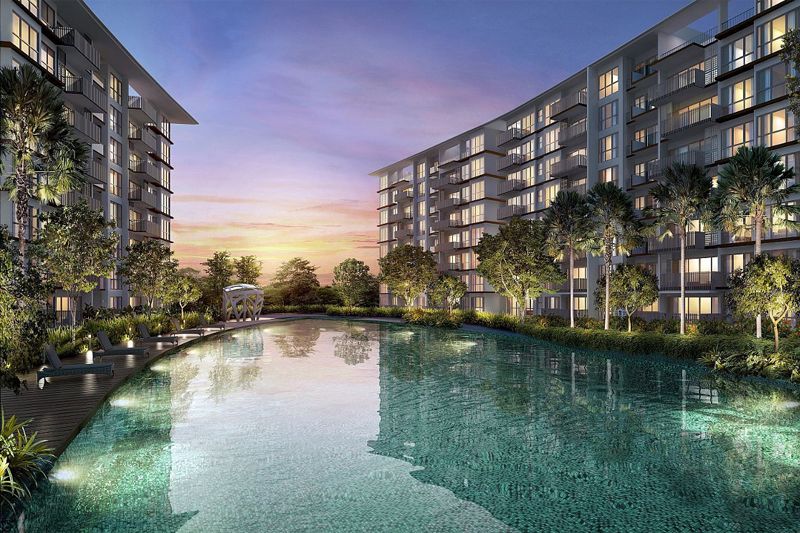
Why Choose A New Launch Condo For Investment?
There are several benefits to buying a new launch condo for investment purposes, take a look!
Appealing New Launch Condo Discounts
First of all, new launch condos tend to hand out early-bird discounts and vouchers during VIP preview sessions, where potential buyers get an invitation to visit the unit in person before anyone else.
You might be lucky enough to get a discount of up to 11 % while hand picking the exact unit that you want.
This gives you an opportunity to get your hands on the ideal unit, which is placed at the most convenient and scenic spot.
Having a unit that looks better and is located more conveniently than others boosts up your chances of finding tenants, or buyers if you wish to sell it later on.
Latest Designs And Amenities
New launch condos are new developments and will always have the latest amenities, eye-catching designs, and aesthetically pleasing visuals.
Having this advantage makes new launch condos a more lucrative and luxurious option than a resale condo which will probably be outdated.
After all, many potential buyers in the market want to pay top dollar for the best-looking apartments in town.
They want to have the feeling of modernity and luxury, and they won’t compromise on it no matter what.
Meanwhile, Resale condos, having been built years ago, will not be able to compete with a freshly made smart home with futuristic designs and eye-catching aesthetics.
Moreover, a new launch condo will most likely be located in a building with its own supermarket or hair salon.
This is all part of a new effort from developers to bring a convenient and comfortable lifestyle to the average homeowner.
No Need To Spend Money On Repairs
New launch condos, being brand new, are less likely to consist of any maintenance issues or repair needs.
These apartments will be furnished with the latest appliances of the highest quality, which will not show any signs of wear and tear for a long time.
With a new launch condo, you can rest assured that you won’t have to dish out any extra money on maintenance and repair fees.
On the other hand, a resale condo will be filled with old and outdated appliances and furnishings, most of which will need to be repaired immediately.
More Variety To Choose From
You can talk to your property agent and discuss your requirements beforehand in the case of a new launch condo.
There are always various new development projects popping up in the neighbourhood that might catch your eye.
The fact that you get to choose your condo before it is constructed gives you ample time and options to pick from.
You could keep looking until you find the perfect one that you simply can’t resist.
Meanwhile, resale condos are limited and do not have a lot of elements to choose from.
Although they are spacious, they don’t have the latest facilities and designs, making them quite undesirable for tenants.
Method Of Payment
New launch condos allow you to use the progressive payment scheme, which means that you only have to pay for what has been built.
This means that you don’t have to chalk up the entire property price at one go and can instead pay certain sums over the course of years.
What’s more, should you decide you want to sell it off before the construction is completed, you can do so.
Needless to say, these options are not available in the case of resale condos.
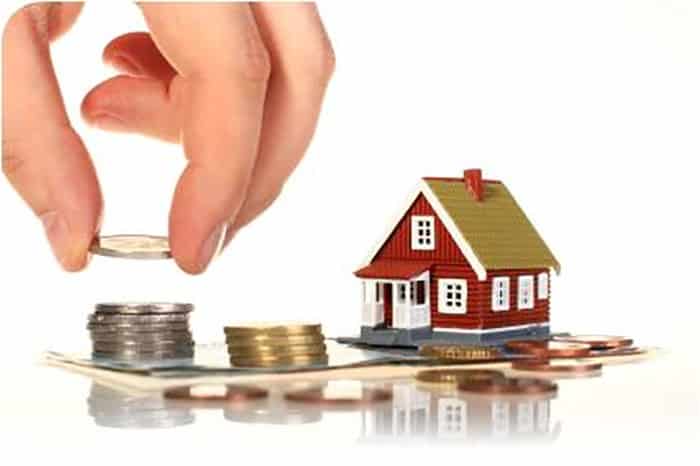
What Factors Affect The Cost Of A Condo In Singapore?
- Buyer’s Stamp Duty
This is something you have to pay regardless of whether or not it is your first property purchase.
The BSD is calculated at 1 % of the first $ 180,000, 2 % of the second $ 180,000, 3 % of the third $ 640,000, and if the property price is more than a million dollars, 4 % of the remaining amount.
So, if you want to buy a condo costing $ 1 million, BSD will cost you $ 1800 on the first $ 180,000, $ 3600 on the second $ 180,000, and $ 19,200 on the remaining $ 640,000.
This will add $ 24,600 on top of the 1 $ million purchase price of the property you want to buy.
- Additional Buyer’s Stamp Duty
If you are a Singapore citizen, you won’t have to pay ABSD on your first property purchase.
However, you will have to pay ABSD at the rates of 12 % on the second property and 15 % on the third property.
So, your second property, valued at $ 1 million, will increase in price by $ 120,000. And your third property will increase by $ 150,000.
If you are a permanent resident, you will have to pay 5 % ABSD on your first and 15 % on your second and subsequent properties.
This will increase your first property price from $ 1 million to $ 1 million 50 thousand.
Your second property will also have an extra $ 150,000 added on top of the $ 1 million.
If you’re a foreigner, then you will be charged 20 % ABSD even on your first property, which would increase the cost by $ 200,000.
Entities, such as companies and corporations, will have to pay an additional 25 % as ABSD, adding $ 250,000 on top of the $ 1 million cost.
- Loan To Value Limit
The LTV limit essentially controls how much minimum cash downpayment you have to put up and how much in total you have to pay for the property from your end, excluding the loan from the bank.
If you have an LTV limit of 75 %, you will only have to pay for the remaining 25 % on your own and pay a minimum cash downpayment of 5 %.
If you have an LTV limit of, say, 55 %, you will have to come with the remaining 45 % on your own and manage a minimum cash downpayment of 10 %.
If you have an outstanding loan to your name, your LTV will decrease to 45 % or 25 %, in which case, you will have to chalk out a 25 % cash downpayment.
If you have two outstanding loans, your LTV will drop to 35 % OR 15 %, meaning you have to come with the remaining amount, plus a 25 % cash downpayment.
Up Front Cost Breakdown For A S$1M Condo
As mentioned earlier, the upfront amount that needs to be paid for any property depends on the BSD, ABSD, legal fee costs, and property price.
If you are a Singapore citizen buying your first million-dollar property will only have to pay for BSD.
So, assuming that the LTV is 75 %, you will have to pay the remaining downpayment of $ 250,000 and the BSD fees of $ 24,600, which comes up to a total upfront cost of $ 274,600.
Now, assuming that the LTV is 55 %, you would have to pay the remaining downpayment of $ 450,000 and the $ 24,600 BSD amount, totaling an upfront cost of $ 474 600.
Now, if it’s your second property, then you also have to factor in the 12 % ABSD cost, i.e., $ 120,000.
So, an LTV limit of 45 % means you will have to pay the remaining $ 550,000, added with the $ 24,000 BSD, further added with the $ 120,000 ABSD, resulting in an upfront cost of $ 694,000.
If the LTV limit is 25 %, you will have to pay the remaining $ 750,000, added with $ 24,000 BSD, further added with $ 120,000 ABSD, resulting in an upfront cost of $ 894,600.
Note that Singapore’s permanent residents will have to pay 5 % ABSD on their first and 15 % ABSD on their second property purchases.
On the other hand, foreigners will have to pay 20 % ABSD on all property purchases.



